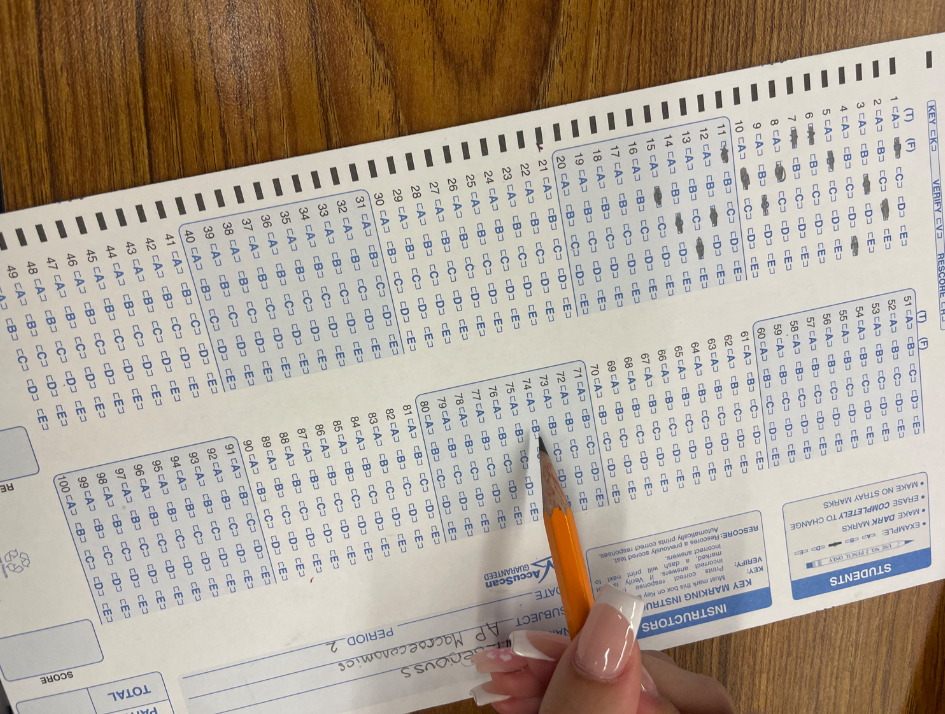
The way cultural backgrounds and family principles effect life at school as well as the breaking of their common myths and stereotypes.
As a child and teenager growing up, school plays a very big role in one’s life. Almost all aspects of life are affected by it, whether it is our classes, teachers, friends and activities in school. We make friends, learn new subjects and information, and discover new parts of ourselves. School is also a place where we cultivate our core beliefs and personalities. From our birth, our closest family tells us what to believe about the world and how to approach it. But once we enter school, we put many of our familys’ principles to the test. Even though the school experience is different for every person, family culture and traditions play a big role in one’s school experience.
To further investigate how at home cultures influence the everyday high-schooler, we interviewed foreign and first-generation students with strong Polish, Pakistani, Egyptian, Spanish and Hindi backgrounds. Throughout our research we have discovered the truth behind many common myths and stereotypes. As well as getting more insight on popular cultural events and holidays, we also got a look on the way the students’ cultures affect daily home and school life.
America is a melting pot of multiple cultures from all around the world. Many of these cultures are ancient, with families and traditions dating back tens and hundreds of generations! In order to carry down the principles that allowed cultures to flourish, many foreign countries in force culture and tradition to be taught in school. That way, children are brought up very closely to their native culture. Yet when many students come to the United States, they are faced with many different people carrying their different opinions and morals. This often challenges the mindsets of students that are especially close to their cultures.
We could relate…
There are many similarities between teens growing up in America with strong cultural backgrounds. This is due to their similar experiences in their school careers. These are the most common similarities between most students from our interviews that are close to their native culture.
We grow up learning two languages. For families with strong cultural backgrounds, it is very common for parents to teach their children their native language. Many such children grow up speaking both American English and their parents’ language. Many parents are very keen on preserving their children’s language skills, being stricter with speaking native languages at home instead of English. Yet sometimes it is hard to practice your parents’ language when all your friends speak English.
We grow up with two different cultures. With deep heritage roots and the reinforcement of a family’s native language, discovering one’s foreign culture allows one to compare their current American cultural principles to that of their countries. Though many cultures have similar principles to promote goodness and unity, there are many different traditions and ideas. For example, each country has different memorial days for independence or war victories. In America, Thanksgiving is a very popular and important holiday, but it means absolutely nothing in Europe. Though the modern culture seems to be globalized, there are still drastic differences between the European lifestyle and that of America.
Myths & Stereotypes
Among many crazy myths that American students have said they heard about international students, these were the most common.
Crazy Living Environment. Due to the great mix of cultures and people trying to interpret them, there are many myths and misconceptions that arise. Yet very often, these opinions are often false and exaggerated. ” When I came from Egypt, many people asked me if I lived in a desert!” states Basma Marghany. She lived in an urban city, very similar to the cities here in the United States. Only the climate and location were different.
Very Strict Parents. Many bi-cultural students end up being very smart and competitive due to their strict upbringing. However, this is not the case of having lenient parents but cultural values. “Back in Pakistan, the school system is completely different,” states Atif Warraich, a first generation student with Pakistani roots.”We learn much more about complex subjects at a younger age when comparing to the United States.” The reality is that school systems differ everywhere due to different political situations and ideas of education. It is not that parents are strict or the culture is very high-end proper, but that the culture has different principles.
Their families live in total luxury. Many people assume that foreign students are surrounded by designer brands and come from generations of kings. This can be seen on many social media platforms. This is also very much false. Family wealth is a matter of economic status, not necessarily culture. However, culture does play a role in a country’s economic situation in the modern world.
Activities Outside of School
Attending Secondary School. In order to preserve the language, historical knowledge, and patriotism of their native cultures many culturally bound teens attend a school outside their weekday American School. For example, senior student Konrad Zawadzki attended a Polish Supplementary School up until graduation. “I would go to Polish school every Friday at 6pm. We would study polish history, grammar and culture. ”
Cultural & Religious Gatherings. Many students with religiously close cultures like Basma, attend the Mosque every Friday. “We do many fundraisers, charity events and come together and celebrate many holidays. Its always a lot of fun,” states Basma.
Holidays are on School Days. Though we have many holidays in our school year for religious and memorial purposes, students with different cultural backgrounds celebrate holidays on we think are normal school days. For example, in the Basma’s Arabic culture there is the holiday Eid. This falls on the first day of final exams. “It is an important holiday and my finals are important tests! I had to miss them to celebrate with my family.”
Opinions on American Culture
Less religious influence. Compared to other countries, America’s modern youth culture has much diversity leading to mixing different views and beliefs.”My family all came from Pakistan,” says Atif. “In Pakistan, everyone is very close to our religion, it is something we greatly value and hold priority to. It is unusual to see, in America, that many students are not at all close to their religions.”
Differing after-high school routes. Many students, like Basma , are surprised by post high school plans in America and its students. “In Egypt, my parents told me that after high school everyone in their family went to college, but when I came here I met people who have many other plans!”. The idea of not going to college is very bizarre for many foreign cultures that believe that college is mandatory for success.
Very Open and Friendly public. Upon interviewing many bi-cultural individuals there was an interesting speculation that many students noticed. When comparing to other cultures that have stricter principles and rights, America is much more welcoming and positive. This is something good because the American culture promotes the idea of diversity and imperfection being the key to greatness.
The Melting Pot. America is comically named the ‘melting pot’ or ‘big salad’ for its great diversity in cultural groups and people. Many foreign students are relieved by the fact that can easily relate to many individuals who are in similar situations. After all, immigrants founded our current American government a long time ago.
Conclusion
After interviewing our bi-cultural students, it is clear that native culture plays a big role in one’s school life and career. It was interesting to see many similarities between foreign and first-generation students. This broke many common stereotypes and allowed us to take an even closer look at their bi-cultural lives. With this new understanding, we should realize that teens, no matter where they come from, are teens. They eat like us, sleep like us, they have rebellious moments, like hanging out with friends and have their own struggles.











